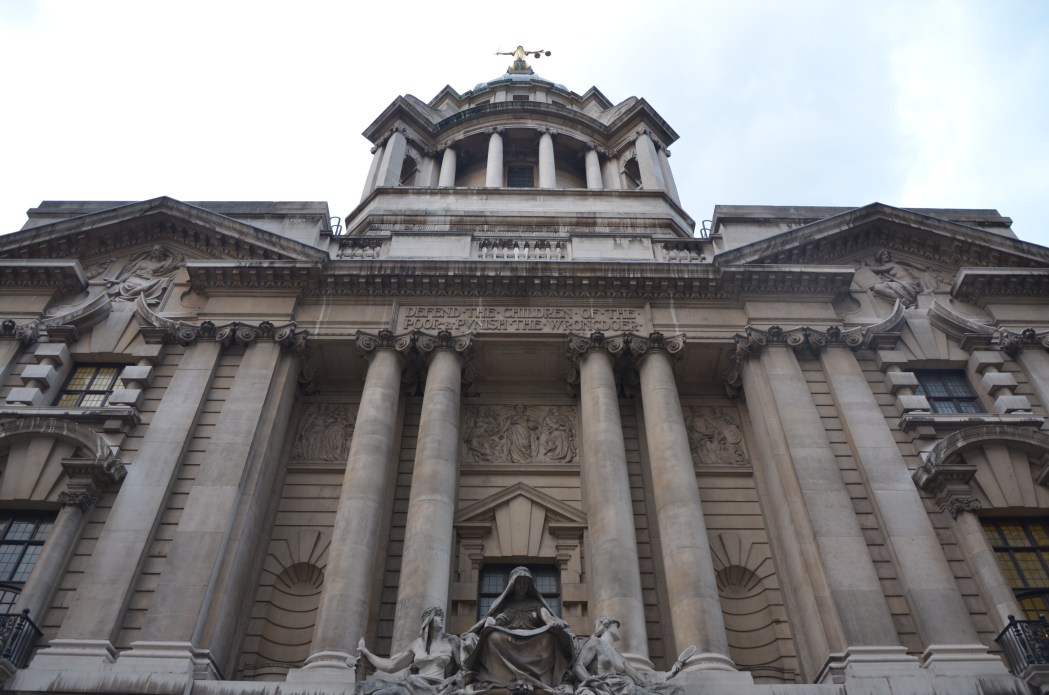“Constant vigilance is the price of freedom,” we are told, though apparently this remark did not originate with the American founding father, hero, slave owner and rapist Thomas Jefferson. Still, this orphan quotation is highly spoken of, so in that spirit I would like to note that the Hong Kong Court of Appeal has just come up with a really bad idea.
The matter before their Lordships concerned two cases in which the presiding judge had ruled that the defence had no case to answer and acquitted the defendant off his or her own bat, as it were.

The appeal judges were asked by the Department of Justice to assess the correctness of these moves. This was not in the strict sense of the word an appeal because the verdicts were final.
The successful defendants had in fact left the territory, which the judges seemed to feel was rather inconsiderate of them. But the accused were all from distant countries (both cases concerned drug smuggling) and one imagines that two years in remand custody in Hong Kong would cause in most people an acute case of homesickness.
Their lordships’ judgement is neither easy reading nor brief. Readers who survive the experience will have had a lengthy tour of the law on “no case to answer” in several jurisdictions and some decided local cases. Their conclusions may be summarised as: the two judges were wrong and the law is reasonably clear, but some recent statements of it were, no doubt unintentionally, ambiguous and confusing. Error was understandable.
The way this works is that in criminal cases the proceedings start with the presentation of the case for the prosecution. When the prosecution has done its stuff the lawyer for the defence may ask the judge or magistrate to rule that there is “no case to answer”. In other words the prosecution’s case is so weak that the defendant should be acquitted without further ado.

Judges who have brushed up on the latest from the Court of Appeal will only do this in two sets of circumstances. One is if the prosecution’s case incorporates a fatal error in law – if for example they have charged you under a statute which was not in force at the time of the offence. The other is if they have produced no evidence at all for some indispensable fact related to the case – that the white powder in your suitcase was actually a controlled drug, say.
Likewise, and even less often, the judge may decide after hearing the defence that the prosecution’s case has been so comprehensively demolished that there is no need to trouble the jury with it. If, for example, the alleged murder victim appears alive and kicking in the witness box, the presiding judge will conclude that this case is never going to fly and hoof it off the runway himself.
So far we have merely a restatement of what most people thought the law was anyway, more or less. Those of us who like to think of judges as human may wonder if the two judges concerned would have been less prone to error if they were not feeling some subconscious resistance to the local policy of sentencing the small potatoes of the international drugs trade to decades in prison, despite such sentences being both inhumane and demonstrably ineffective.
However the Court of Appeal did not stop at correcting error. It added the suggestion that if a defendant was acquitted under these circumstances the prosecution should be allowed to appeal against the ruling, as it can in England and Wales.

This is a reference to the Criminal Justice Act of 2003, which is a monument to the proposition that no principle can be too basic or ancient to be violated by a Labour government keen to present itself as “tough on crime.”
The principle concerned is that you cannot be tried for the same offence twice. An acquittal is final. This is so old that it is known by a squirt of Latin, not because mediaeval lawyers liked to display their linguistic skills but because it was actually a part of Roman law: “non bis in idem.” The equally incomprehensible medaeval contribution is a “plea of autrefois acquit.”
Anyway, you get the message. Once the case against you has been dismissed you can confess to the reporter on the courtroom steps with complete impunity. Well, almost. Someone who did this recently was charged with perjury because of the evidence he had given in his own defence, but the original case was a dead parrot.
In the early 2000s the Blair government felt itself under pressure over two murder cases which had ended in acquittals. Both hit hot buttons with the tabloid-reading public, concerning respectively race and paedophilia.
So two thousand years of legal history was binned and it was decided that in a range of the more serious cases the prosecution could appeal against an acquittal (whether by judge or jury), subject to the requirement that the Director of Public Prosecutions certifies that the appeal is in the public interest, and that there is “substantial and compelling new evidence.”

This was controversial at the time and has remained so, though actual cases have been extremely rare. While attention was concentrated on this innovation, though, the draughtsmen also included a new procedure for cases in which some rulings were handed down which the prosecution might not welcome. The prosecution could, subject to stringent conditions as to speed, appeal the ruling – decisions that there was no case to answer were specifically included – to the next highest layer of courts.
As far as I can discover very little use has been made of this. The Guidelines for Prosecutors in England and Wales (which are on the internet, like everything else) are explicitly discouraging. Prosecutors, after all, have many advantages already. If the case was so feeble as to attract a “no case to answer” ruling it is likely to end badly for the prosecution anyway.
And the question which then arises is whether this would be a good idea in Hong Kong, and my suspicion is that it would not. Hong Kong is a much smaller jurisdiction. Cases of interest would be rare. Is it worth abandoning the principle that an acquittal is an acquittal because of the fear that one or two miscreants may be freed in error?
The object of court trials is not just to punish the guilty; it is also to protect the innocent. Adding new facilities for the prosecution can appear as an attempt to nudge the scales of justice in a particular direction. In a jurisdiction where faith in the administration of justice is, to put it mildly, fragile, this is not a good look.
It must be said also that prosecution policies in the UK may feature a level of restraint that we do not find here these days. Many lawyers prosecuting cases in English courts also work as defence lawyers in other cases. They are attuned to the idea that the prosecutor is an officer of the court whose first loyalty is not to prosecutorial statistics but to enabling the achievement of justice.
In Hong Kong, the Department of Justice’s “leave no stone unthrown” approach to prosecution does not inspire confidence in any innovation sold on the basis that it will rarely be used in practice.
Local judges who would like to import some items from the UK should look elsewhere. Can we not, for example, have limits on the time people can be remanded in custody pending trial? There, they raised the “Custody Time Limit” from six to eight months temporarily during Covid. Here, a two-year wait for trial passes without comment.
Support HKFP | Policies & Ethics | Error/typo? | Contact Us | Newsletter | Transparency & Annual Report | Apps
Help safeguard press freedom & keep HKFP free for all readers by supporting our team
| HKFP is an impartial platform & does not necessarily share the views of opinion writers or advertisers. HKFP presents a diversity of views & regularly invites figures across the political spectrum to write for us. Press freedom is guaranteed under the Basic Law, security law, Bill of Rights and Chinese constitution. Opinion pieces aim to point out errors or defects in the government, law or policies, or aim to suggest ideas or alterations via legal means without an intention of hatred, discontent or hostility against the authorities or other communities. |

More HKFP OPINION:
HKFP has an impartial stance, transparent funding, and balanced coverage guided by an Ethics Code and Corrections Policy.
Support press freedom & help us surpass 1,000 monthly Patrons: 100% independent, governed by an ethics code & not-for-profit.










